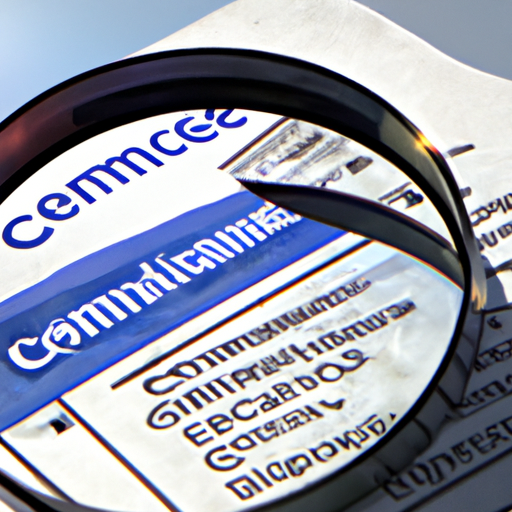Economic conditions can change rapidly, affecting everything from housing prices and local job markets to grocery costs and public services.
These shifts often happen with little warning, leaving residents struggling to adjust their finances, navigate new expenses, and maintain stability.
Whether it’s a sudden increase in rent, local business closures, or rising utility bills, knowing how to adapt can make a significant difference in protecting your financial well-being.

10 Strategies for Handling Unexpected Economic Shifts in Your Neighborhood
By staying proactive and implementing smart financial strategies, you can prepare for unexpected economic changes in your neighborhood. Here are 10 effective ways to handle economic shifts and maintain financial security, even in uncertain times.
1. Stay Informed About Local Economic Trends
Many people focus only on national financial news, but the most immediate economic changes often happen on a local level. Paying attention to shifts in your community—such as rising property taxes, new business developments, or public transportation cost increases—can help you anticipate changes before they impact your budget.
Stay updated by attending town hall meetings, following local government announcements, and reading neighborhood news sources. If job losses or business closures start affecting your area, adjusting your finances early can help you stay ahead of the curve.
2. Build an Emergency Fund for Local Economic Disruptions
An emergency fund is essential when facing economic instability. If businesses in your area are closing or layoffs are increasing, having a financial cushion can help cover unexpected expenses like rent hikes, increased grocery prices, or even temporary job loss.
Set a goal to save at least three to six months’ worth of living expenses. If that feels overwhelming, start small by setting aside a percentage of each paycheck. The key is consistency—regular savings, even in small amounts, add up over time.
3. Adapt Your Budget to Reflect New Costs
Economic shifts can lead to changes in everyday expenses, from higher grocery bills to increased gas prices. If your neighborhood is experiencing inflation, adjusting your budget accordingly ensures you’re not caught off guard.
Track your spending habits and identify areas where you can cut back. Prioritize necessities like housing, utilities, and food while reducing non-essential spending. Subscriptions, entertainment, and luxury purchases can be adjusted as needed to make room for higher living costs.
4. Take Advantage of Local Discounts and Financial Assistance Programs
During periods of economic strain, local governments and organizations often introduce assistance programs to help residents manage costs. These may include rental relief programs, food assistance, reduced public transportation fares, and utility bill discounts.
Research available programs in your area and apply for those you qualify for. Many community centers also offer free or low-cost resources, such as financial counseling, job training programs, and food pantries, which can provide relief during tough economic periods.
5. Strengthen Your Income Streams
If economic shifts are affecting your neighborhood, relying on a single source of income can be risky. Diversifying your income provides financial security and protects you from job losses or business closures that might impact your area.
Consider taking on freelance work, a part-time job, or monetizing a skill you already have. Whether it’s tutoring, selling handmade products, or offering consulting services, having multiple income sources helps cushion the impact of rising costs and economic downturns.
6. Reevaluate Your Housing Situation
For many people, housing is the largest expense in their budget. If rent prices are rising or property taxes are increasing, reassessing your living situation can help you manage costs more effectively.
If renting, look into negotiating a lease renewal at a fixed rate to avoid sudden rent hikes. Homeowners should evaluate property tax changes and research potential tax relief programs. In some cases, relocating to a more affordable area within your neighborhood or city may be a viable option if costs become unsustainable.
7. Make Energy Efficiency a Priority to Reduce Utility Costs
Utility bills often rise in response to economic shifts, particularly when energy costs increase. Making energy-efficient choices can help you save money without sacrificing comfort.
Simple adjustments like using LED bulbs, unplugging electronics when not in use, sealing windows to improve insulation, and reducing water consumption can lower monthly bills. If possible, explore local programs that offer rebates or discounts on energy-efficient appliances or home improvements.
8. Monitor Changes in Local Employment and Job Markets
A shrinking job market in your area can signal upcoming financial challenges for many residents. If businesses are downsizing or relocating, it may be a sign that the local economy is shifting in a way that could impact employment opportunities.
If your industry is at risk, start networking, updating your resume, and looking for job openings in growing sectors. Attending career fairs, taking professional development courses, or learning new skills can help you remain competitive if job opportunities in your neighborhood become scarce.
9. Adjust Your Transportation Habits to Save Money
Rising fuel prices, parking fees, or increased public transit costs can make commuting more expensive. Finding ways to cut down on transportation expenses can free up money for other essentials.
Consider carpooling, using public transit when possible, biking, or even walking for short trips. Some cities offer commuter discounts or incentives for using eco-friendly transportation methods, so looking into local programs could also lead to savings.
10. Plan for the Long Term by Investing Wisely
Even during economic downturns, smart investing can provide long-term financial security. If your neighborhood is experiencing economic shifts, it may impact property values, local businesses, and even retirement investments.
Diversifying your investments—whether in real estate, stocks, or small businesses—can help protect your finances. If local property values are dropping, it may be a good time to invest in real estate. If businesses are closing, investing in industries that remain stable during downturns could be beneficial.
Long-term financial planning ensures that you remain financially secure despite temporary economic challenges.
Final Thoughts
Unexpected economic shifts in your neighborhood can create financial uncertainty, but by staying informed and making proactive adjustments, you can protect yourself from major disruptions.
Adapting your budget, seeking additional income sources, monitoring job market trends, and taking advantage of financial assistance programs can help you navigate changes with confidence.
By planning ahead and remaining flexible, you’ll be able to manage local economic fluctuations effectively while maintaining financial stability.






